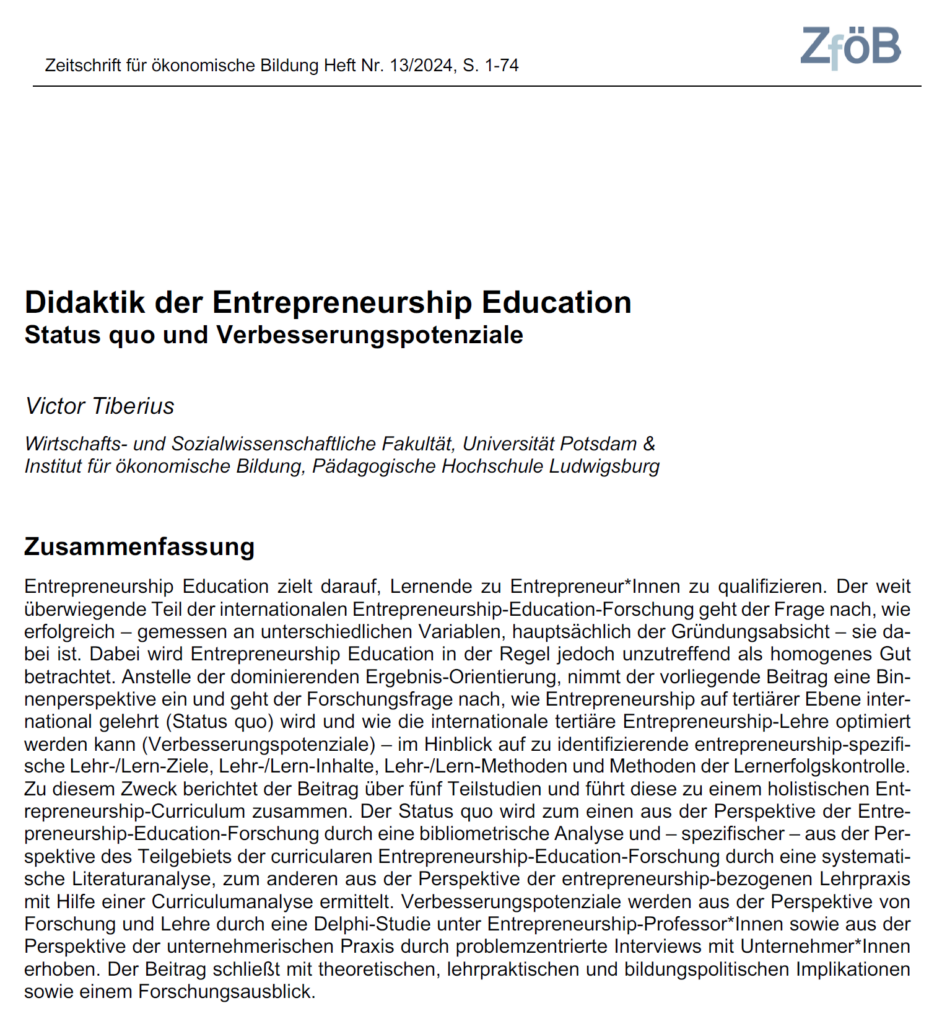University|05-22-2024
Entrepreneurship education curricula
Abstract:
Entrepreneurship education aims to qualify learners to be entrepreneurs. The international entrepreneurship education research mainly focuses on several outcome variables of entrepreneurship programs, particularly on entrepreneurial intention. In this regard, entrepreneurship education is usually treated like a homogeneous good. In contrast to this outcome-orientation, this paper adopts an internal perspective, investigating how entrepreneurship is taught at the tertiary level internationally (status quo) and how higher entrepreneurship education can be optimized (improvement potentials). In this regard, it focuses on identifiable entrepreneurship-specific teaching/learning objectives, teaching/learning content, teaching/learning methods, and assessment methods. To this end, the paper reports on five studies and integrates them into a holistic entrepreneurship curriculum. The status quo is determined from the research perspective through a bibliometric analysis and, more specifically, through a systematic literature analysis on the subfield of curricular entrepreneurship education research, and from the perspective of entrepreneurship teaching practice through a curriculum analysis. Improvement potentials are identified from a scholarly perspective through a Delphi study among entrepreneurship professors and from the perspective of entrepreneurial practice through problem-centered interviews with entrepreneurs. The paper concludes with theoretical, practical, and policy implications as well as an outlook for future research.
Reference:
Tiberius, V. (2024). Didaktik der Entrepreneurship Education: Status quo und Verbesserungspotenziale. Zeitschrift für ökonomische Bildung, 13, 1-74. doi:10.7808/zfoeb.2024.13.97




